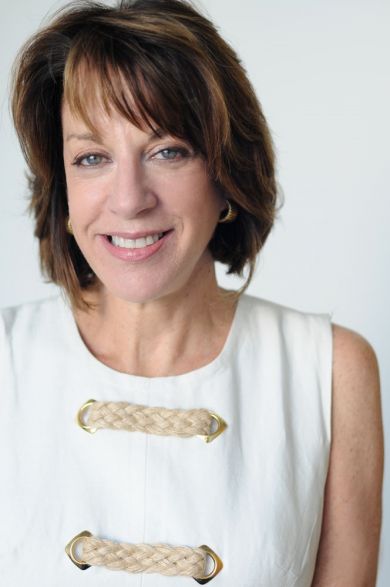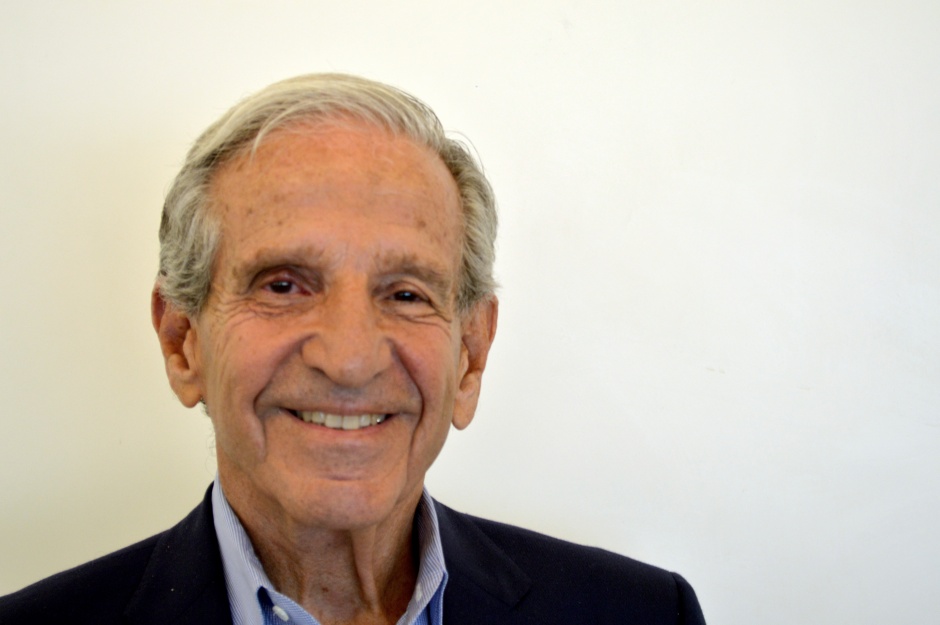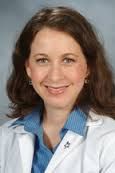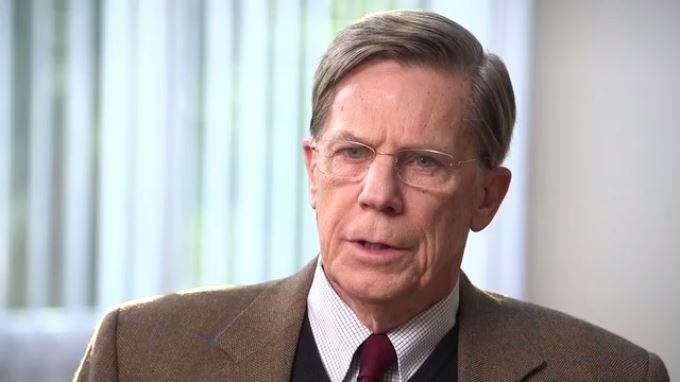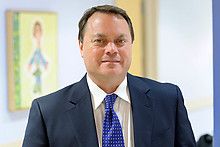The cancer campaign that got personal
Anne F. Glauber had plenty to celebrate at her 60th birthday party. The public relations powerhouse, a managing partner at the global communications company Finn Partners, had just published a book, Advice for a Happy Life: Lessons from My Mother, and was already thinking about doing another. As a founder of her firm’s corporate social-responsibility and social-impact practice, Glauber spearheaded deeply fulfilling projects such as No More, which brings together advocacy groups, corporations and the U.S. Department of Justice in a unified effort to end domestic violence and sexual assault.
But she was also looking forward to unwinding a bit. “I would say to my friends, ‘Now’s our time,’ ” she says. “We have our health; we’re physically capable. We should be traveling and exploring what we want to do next with our lives.” She was thinking India, Israel . . . maybe taking whole summers off to go abroad. “I had all of these interesting plans and ideas.” Then came a devastating diagnosis, and “it all evaporates right in front of you,” she says.
Glauber had been growing increasingly tired—and attributed the fatigue to her usual busy schedule. Then a bout of jaundice sent her to the doctor. In May 2014, just six months after that milestone birthday, Glauber learned that she had stage 4 pancreatic cancer—and that the few options she had ran from bad to worse.
Since so much of her career had been spent focusing on how to “generate news that would make other people turn around and pay attention,” Glauber decided to bring her skills to bear. Whatever time she had left, she would use it to raise awareness, funds and outrage.
Glauber mobilized her PR and media resources and brainstormed a pancreatic cancer clearinghouse, Let’s Win, that she hopes to have up and running in May. “It will be an Internet-based platform where pancreatic cancer patients and families can talk to each other about treatments,” she explains. “We’re also going to focus on scientists who are really doing strong work in pancreatic cancer." (Visit letswinpc.orgfor updates.) She's joined the board of the Lustgarten Foundation, a pancreatic cancer research and fundraising organization, and as been blogging about her own treatment regimen at the Huffington Post. “I really began to immerse myself in this issue, like pancreatic cancer was my client,” she says with a laugh. Here, she talks about what it’s like to live with such a deadly disease, how it has changed her and what you should—and shouldn’t—do when a friend or loved one is diagnosed.
Tell us about the day you learned you had pancreatic cancer. The surgeon just delivered the news straight out: “This is what you have, and these are your treatments. And one’s bad and the other’s worse.” When I asked, “What do I do next?” he said, “Well, I guess it’s just, you know, you should live day to day.” It was just shocking. I did not continue with this doctor, but as I began to understand this disease better, I realized that there really were no long-term treatments for pancreatic cancer, and certainly no cures.
What did you do next? I’m really grateful that my kids—my daughter’s 34 and my son’s 29—just rallied around me and started to do research and kept at it. And I had friends, too, who said, “You know, we’re going to participate in this, and we’re going to use our networks to try to identify the best pancreatic cancer doctors in the country.” People really, really came through for me on that and just began to give me information about where I should go and who I should talk to in terms of next steps. That helped during the shock period, feeling like I had a team of people who were there just helping me and research. [A radiologist suggested that Glauber consult with a doctor in Los Angeles, gastrointestinal oncologist, William H. Isacoff. She headed west over the Memorial Day weekend and felt a kinship with the doctor, whom she now calls “a maverick and a pioneer.”]
He looked at me and said, “I just want you to know for the past 45 years there’s been no advances in pancreatic cancer. That’s a real problem. And it’s one that I think about and address every single day.” We had packed for the weekend, but after meeting him and seeing how frank and honest he was, and how he seemed to have the patient’s back in so many ways, I decided I wanted to start my first treatment with him. So I ended up staying in L.A. for three and a half weeks.
My kids took leave from their jobs, and they stayed with me. My partner, Dave, went back and forth every weekend—he’s a financial adviser. And so that’s how we lived in June. We rented a house through Airbnb. We were living in someone else’s home, and I was going through chemo. But starting something like this, it helped to be separate, in a way, from everything I had known before. After the first month, we came back to New York. Bill collaborates with a wonderful doctor at New York–Presbyterian/Weill Cornell, Allyson Ocean. And that’s who I see now on a weekly basis. Like Bill, she is very much open to creative risk taking, all based on science.
How has pancreatic cancer changed you, in the practical sense of your day-to-day life, as well as your outlook? That’s a hard question to answer in a way, because I think I’m probably still going through these changes. I stopped working full time. I never thought that was going to happen so quickly and so fast. My working identity was my identity [laughs], a public relations executive involved with really important issues. I’d speak about retirement, like, “How could I give up that position, that job, that identity?” But I gave it up in a second. It just went.
And it’s strange, but I was able to immediately step back from that day-to-day grind of my life. I spent a lot of time getting chemo and dealing with that, and getting to know my doctors, and getting to know the science, for sure. But I also spent a lot of quiet time, totally refocusing my priorities. Spending time with my family. Telling people more often how I felt about them, being much more honest in conversations. Having, for one of the first times in my life, the ability to say no when I didn’t want to do something.
Even though something else was controlling my body, I felt, to some degree, much more in control of my time. I have a house out of the city; spending time this summer just watching my cherry tree blossom was great [laughs]. I had never done that before. I kept on missing it. And those things just seem so joyous and wonderful.
What do you want people to understand about this experience? I think, number one, be empowered. Women have looked at all the different ways we can be empowered in our lives. When you get this kind of devastating disease, it’s very easy to be passive, to feel overwhelmed, to feel that there’s nothing that you could take control of anymore. I felt that way initially. But you can take control—with the right kind of information and by taking action to make sure you get second opinions and third opinions if you’re feeling uncomfortable. If you can’t do it on your own, have a team of people that will empower you and give you the knowledge that you need to handle any life crisis.
What should people do—or not do—when someone close to them gets a diagnosis like this? What not to do? Pretend it does not exist. I had a friend who came over to visit and talked about her life and problems and never asked me how I was feeling or doing! Clearly she was nervous. So recognizing what’s happening to a friend and acknowledging it—“I am sure this is really difficult for you now; what can I do?”—is the much better course of action.
I found what was most helpful after my diagnosis was when friends and family reached out to me, just telling me that they cared, that they loved me. I felt an enormous feeling of love that lifted me and kept me afloat when my life seemed to collapse around me.
Anne F. Glauber is a managing partner at Finn Partners and a member of the board of the Lustgarten Foundation. Follow her on Twitter: @anneglauber. Read her blog at the Huffington Post. And stay tuned at letswinpc.org for the official Let's Win website launch.
This story originally appeared in MORE Magazine.



